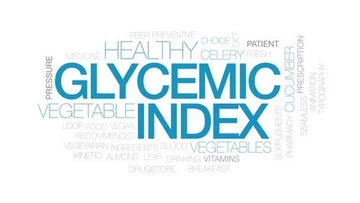Introduction:
The topic of coffee often involves discussions about its primary component, caffeine, as the majority of coffee drinkers prefer regular coffee over decaf. Caffeine is a stimulant that affects individuals differently due to genetic variations. Its impact can be felt within minutes and can last up to ten hours, affecting various bodily systems. When examining the effects of coffee, it is essential to distinguish between short-term and long-term consequences.
Short-term Effects: Caffeine and Insulin Sensitivity
Coffee, on its own (without added sugar or dairy), does not contain carbohydrates that directly raise blood glucose levels. Studies have shown that caffeine consumption can reduce insulin sensitivity, leading to elevated insulin levels without effectively regulating glucose levels. The reduction in insulin sensitivity is observed even after a single dose of caffeine following a period of caffeine avoidance or high coffee consumption over several weeks. Genetic differences in caffeine metabolism may also contribute to individual variations in its effects on glucose and insulin levels.
The mechanism behind caffeine's impact on glucose metabolism involves its ability to block adenosine receptors in the brain and other body tissues. This can lead to decreased insulin sensitivity in adipose tissue, muscle tissue, and the liver, affecting glucose uptake and production. Additionally, caffeine increases the release of epinephrine (adrenaline), which can cause insulin resistance and interfere with glucose control.
Long-term Effects: Coffee and Type 2 Diabetes Risk
Contrary to its short-term effects, long-term coffee consumption has been consistently associated with a reduced risk of developing Type 2 diabetes. This protective effect is not solely attributed to caffeine since decaf coffee exhibits similar benefits. The most likely contributing factor is the presence of chlorogenic acids, a group of polyphenols with antioxidant properties found in coffee.
Chlorogenic acids have been shown to positively influence glucose and lipid metabolism, combat diabetes and metabolic syndrome, and reduce high blood fat levels. These compounds can inhibit glucose production in the liver, reduce intestinal glucose absorption, increase glucose uptake by fat and muscle tissues, and improve insulin sensitivity. Studies suggest that the long-term benefits of chlorogenic acids outweigh the short-term negative effects of caffeine on insulin sensitivity.
Alternative Options:
For individuals who prefer alternatives to coffee, green coffee bean extract supplements or green tea are potential choices. Green tea contains catechins, another group of polyphenols, which have been shown to regulate glucose uptake in the gut and offer metabolic benefits.
Conclusion:
While caffeine in coffee can decrease acute insulin sensitivity, the long-term protective effects of coffee consumption against Type 2 diabetes may outweigh these short-term concerns. Decaf coffee appears to offer similar benefits with a milder short-term impact. For those who are not coffee enthusiasts, chlorogenic acids can be obtained from various fruits and vegetables, and green tea can provide similar long-term metabolic benefits. It's essential to avoid adding sugar or artificial sweeteners to coffee and opt for healthier alternatives to energy drinks.





